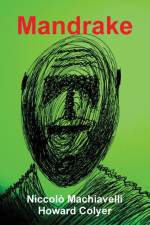av Niccolo Machiavelli
277
Niccolò Machiavelli's The Art of War is essential reading for any student of military history, strategy, or theory. The Art of War was written in socratic dialogue. It's purpose is "To honor and reward virtù, not to have contempt for poverty, to esteem the modes and orders of military discipline, to constrain citizens to love one another, to live without factions, to esteem less the private than the public good." To these ends, Machiavelli notes in his preface, the military is like the roof of a palazzo protecting the contents. The Art of War was first published in 1521 and was the only historical or political work printed during Machiavelli's lifetime.Niccolò Machiavelli's The Prince is a political treatise sometimes claimed to be one of the first works of modern philosophy, especially modern political philosophy, in which the effective truth is taken to be more important than any abstract ideal. It was also in direct conflict with the dominant Catholic and scholastic doctrines of the time concerning how to consider politics and ethics. The descriptions within The Prince have the general theme of accepting that ends of princes, glory, and survival, can justify the use of immoral means to achieve those ends. Niccolò di Bernardo dei was an Italian philosopher, humanist, and writer based in Florence during the Renaissance. He is one of the main founders of modern political science, was a diplomat, political philosopher, playwright, and a civil servant of the Florentine Republic. He also wrote comedies, carnival songs, poetry, and some of the most well-known personal correspondence in the Italian language.






























